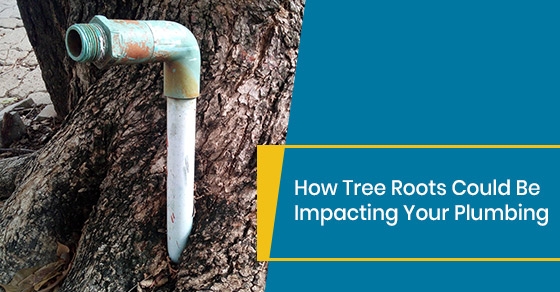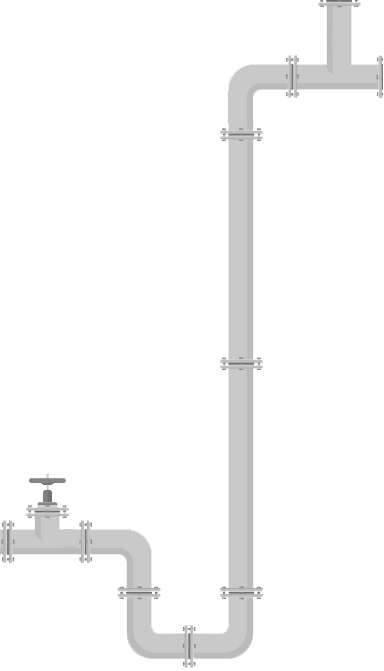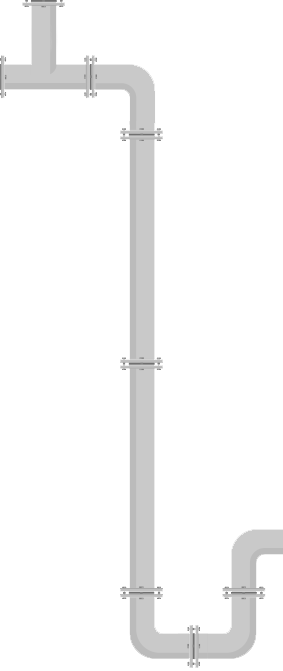How Tree Roots Could Be Impacting Your Plumbing
Posted by Jason Genah on 06-07-2020

Trees and shrubs are a great addition to your landscape, providing fresh air, beauty, and shade when mature. However, uncontrolled root growth under the ground can cause them to quickly encroach on your sewer lines, resulting in thousands of dollars worth of damage to your plumbing system. Owing to the severity of tree root plumbing problems, it’s important that you contact your local plumbing professionals for timely repairs.
The intrusion of roots into sewer lines is arguably the most destructive plumbing problem you can face, which can result in:
- Structural damage brought about by the penetrating roots
- Sewer stoppage, overflow, or backups
- Formation of septic pools or soggy grass
- Foul smell from the affected area in your yard or inside your home due to the blockage
- Exfiltration of sewage into soils around the leaks
- Contamination of clean water around the leaks
Considering that most of the damage to the sewer lines and pipes occurs underground, identifying the signs of tree root damage is very important to get the problem fixed by professionals on time and preventing the issue from recurring. Some early warning signs include clogged toilets, slow-flowing drains, and gurgling noises.
The Danger Posed by Tree Roots
Plants grow wherever the conditions are favourable; for example, above ground, plants grow towards the light, while the roots grow towards water and nutrients. If the underground sewer lines are cooler than the surrounding soil, moisture will condense around it and create ideal conditions for root growth. The extent of root invasion depends on the condition of the sewer line, soil conditions, and type of tree.
The leaks in your sewer lines are most likely caused by old worn-out pipes, combined with movements in the surrounding soil, causing cracking and joint failure. As a result, the moisture and nutrients in the sewer lines leak into the soil. When the roots come into contact with leaking wastewater or nutrients, they will grow rapidly at that spot and penetrate damaged pipes in order to access the available water, oxygen, and nutrients.
Tree roots can enter your plumbing lines through:
- Deteriorated seals
- Leaking joints and blocked pipes
- Failed or dislodged joints
- Previous damage
It’s unlikely for a tree root to crack into a properly installed and well-maintained pipe. But once it begins to deteriorate, the roots from all different types of plants, including trees, shrubs, and even grasses, will grow in the pipe. This may, in turn, cause sewage to overflow, putting your health and that of your loved ones at risk. Their growth could also crush the sewer lines against the soil and constrict the flow of wastewater, leading to plumbing issues in your house.
Fixing Tree Root Plumbing Problems
The ideal solution for tree root plumbing issues is preventing them from occurring in the first place. Skilled and experienced plumbers can accurately identify the location of your sewer line as you do your landscaping, and instruct you on the best prevention methods, such as:
- The best place to plant your trees and shrubs is at a safe distance away from the sewer lines.
- The ideal tree species that are less likely to produce destructive roots that could damage your pipes.
- Replacing fast-growing trees every 8 to 10 years.
- Recommending using PVC pipes in the construction process. PVC pipes and joints are flexible, which makes them less likely to crack after soil setting. These cracks are what cause leaks that attract tree roots.
Proper planning during sewer line design and construction can prevent or minimize tree root invasion issues. These problems can be prevented by carefully installing and inspecting sewer lines during installation to ensure that all joints are properly sealed. If trees will be part of the landscape, proper selection of tree species is also necessary, in addition to planting them at a safe distance away from the sewer lines.
Professional plumbers can use advanced video pipe inspection equipment to assess the plumbing for deterioration or risk of damage if you are concerned about the condition or age of your sewer line. Depending on the result, they will recommend the appropriate action, such as replacing the sewer lines with long-lasting root-resistant material. Some tree root plumbing problems may require an integrated root control approach that combines non-chemical control methods, such as mechanical root removal, physical control measures, re-routing of the sewer line, and chemical control using herbicides.
If roots have damaged your sewer lines, the video pipe inspection will also reveal that. The problem can be fixed by mechanically breaking up the roots using augers, drill machines, rodding machines, jetters, and winches, and then blasting the remaining root blockage apart with hydro-jetting equipment. The debris is then washed away to allow for further repairs or replacement, depending on the extent of the damage.
This mechanical control method can be combined with physical control of the sewer line roots, which involves isolating the sewer line environment from the destructive roots. This may include tree removal, pipe relining, and sewer pipe replacement. If necessary, chemical root control with herbicides may be used to kill the plants.
Keep in mind that the problem does not simply end with the removal of tree roots. It’s important to schedule ongoing sewer maintenance to prevent such problems from reoccurring. Scheduled camera inspections, unclogging, and hydro-jetting will keep your sewer lines clear for optimal wastewater removal.
Final Note
You should never ignore any plumbing issues in your home. The longer you wait to contact professional plumbers when you first suspect that your lines are compromised either by tree roots or another source, the greater your plumbing repairs could cost. Trusted plumbers can repair the damaged sewer lines and eradicate the tree roots responsible for the problem. Contact your local experts for all your tree root plumbing problems today.
For more information on how tree roots can affect your plumbing, contact Drain King Plumbers at 833-983-5301.




